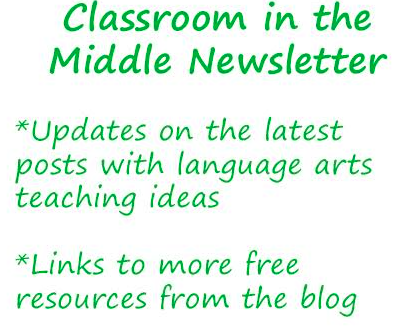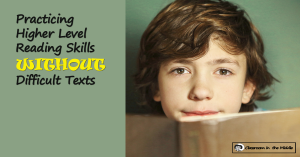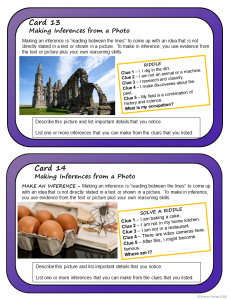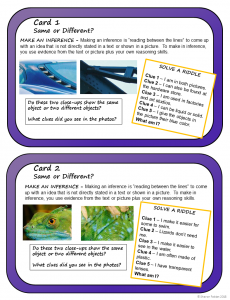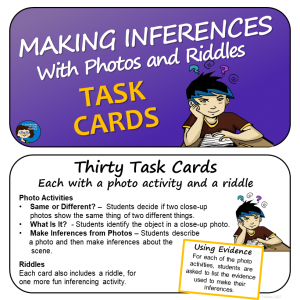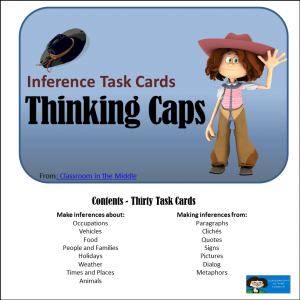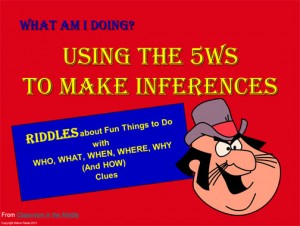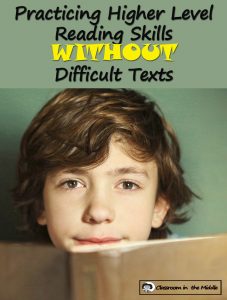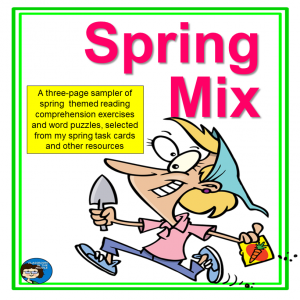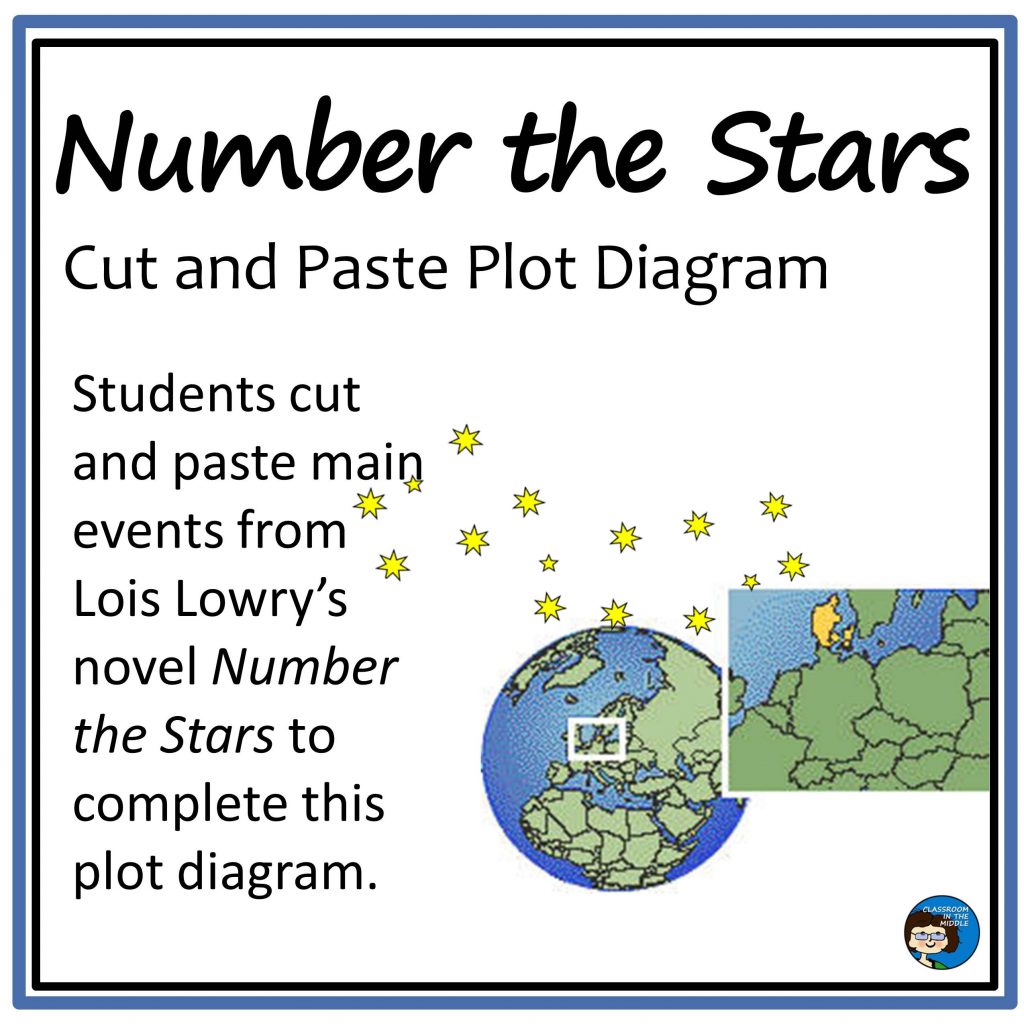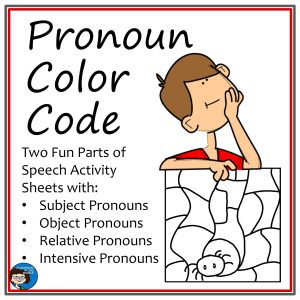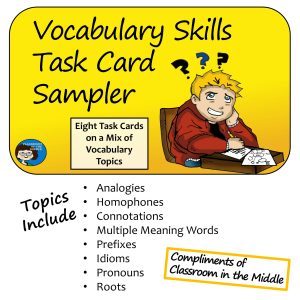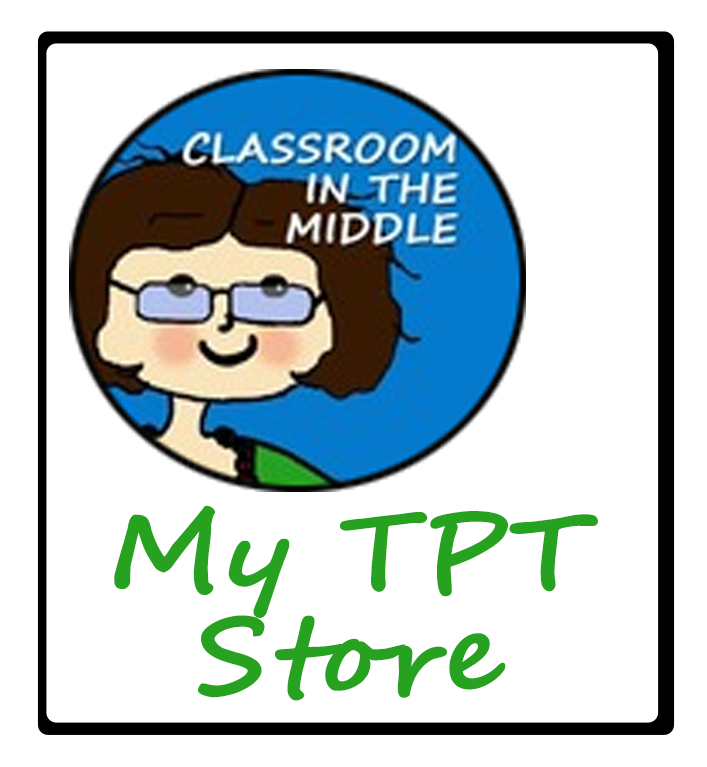Kids need to learn to handle increasingly complex texts, and that includes putting higher level reading skills into use to really comprehend those texts. Making inferences and drawing conclusions are two of the most important of those skills. But before they can become expert at using those skills on difficult texts, sometimes kids just need to practice with simpler, more engaging, content.
Two types of content that I especially like for these lessons are photographs and riddles.
USING PHOTOGRAPHS
Photographs are a really easy entry point for kids who might have difficulty with a new skill or kids who are reluctant to read, simply because they don’t involve reading at all. But making inferences about photos can still teach kids to use that skill and will help to make difficult readings more accessible to them later.
Photographs of people are great. Photos of scenes with people in them can be the source for kids to make inferences about what the people are doing, where they are going, and more. Close-up photos of individuals might lead to inferences about who the person is, what they are thinking about, and how they are feeling.
One fun activity that I like with photos is to use two close-ups. Select two photos that are somewhat similar but are so close up that’s it’s not totally obvious what they are pictures of. Ask the students, are these two photos of the same object or two different objects? How do they know? What are the clues in the photograph?
Photos can easily be used to practice making inferences about story elements. Looking at a photo of a person, discuss possible character traits. Or looking at a photo of scenery, talk about it as the setting for a story. Photos of scenery can lead in to discussions about genres; think science fiction or historical period pieces.
Kids could also look through their own photos on their phone for ones with a specific characteristic. For example, kids could be asked to find a photo where it appears that the subject was distracted and to tell what evidence they used to choose that one. Maybe they will choose a picture where the main subject is looking at something to the side rather than toward the camera.
Current events are a great source for photo activities. In either a social studies class or a language arts class, current photos are an easy way in to discussions of serious issues of the day or recent events, with plenty of inference-making and conclusion-drawing along the way of course!
USING RIDDLES
Riddles are another great source of content that is easily accessible to kids regardless of their reading level. You could create a set of riddles related to a story that you are about to read in class, or a few riddles for the season or a holiday. Or select a set of riddles created for classroom use.
For a whole-class lesson, I like a set up where the teacher can present one clue at a time, such as a slide presentation with one clue per slide. This way, more kids get to guess (I mean, make informed inferences!) after each clue is revealed. Riddles are surprisingly easy to write, one you’ve done a few. I did a whole set using the classic 5Ws as the basis for my clues.
For individual or small group use, it is more practical for many teachers to use something like task cards or an activity sheet with all clues presented together. In addition to their solution to the riddle, students can tell how they knew (using text evidence), and which clue first gave them the answer.
Here are a couple of images from a set of task cards I’ve recently made for using photos and riddles to practice making inferences and drawing conclusions. I think kids will have fun with these!
Studying a Photo (and Solving a Riddle)
Comparing Two Photos (and Solving a Riddle)
Related Resources

